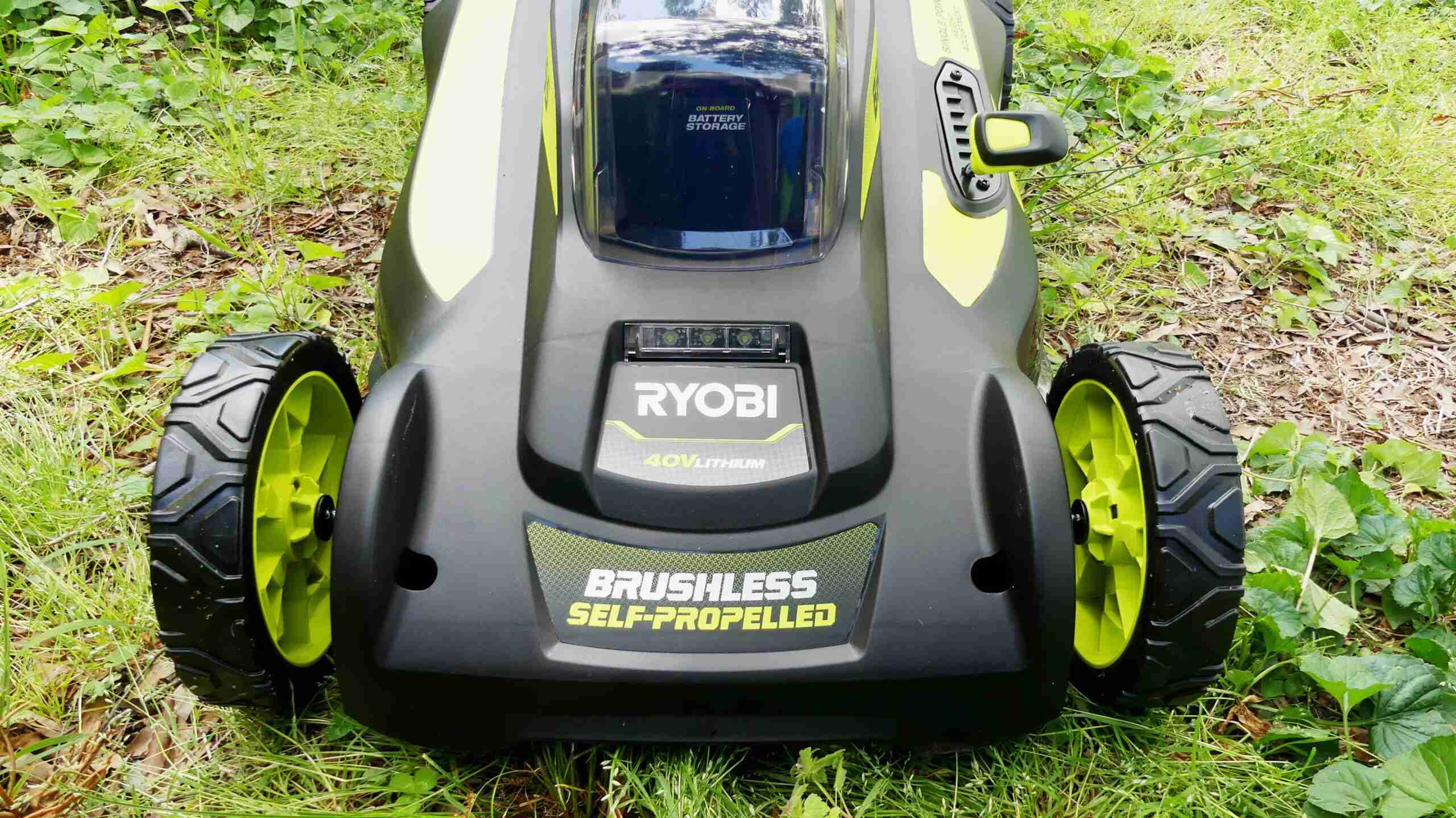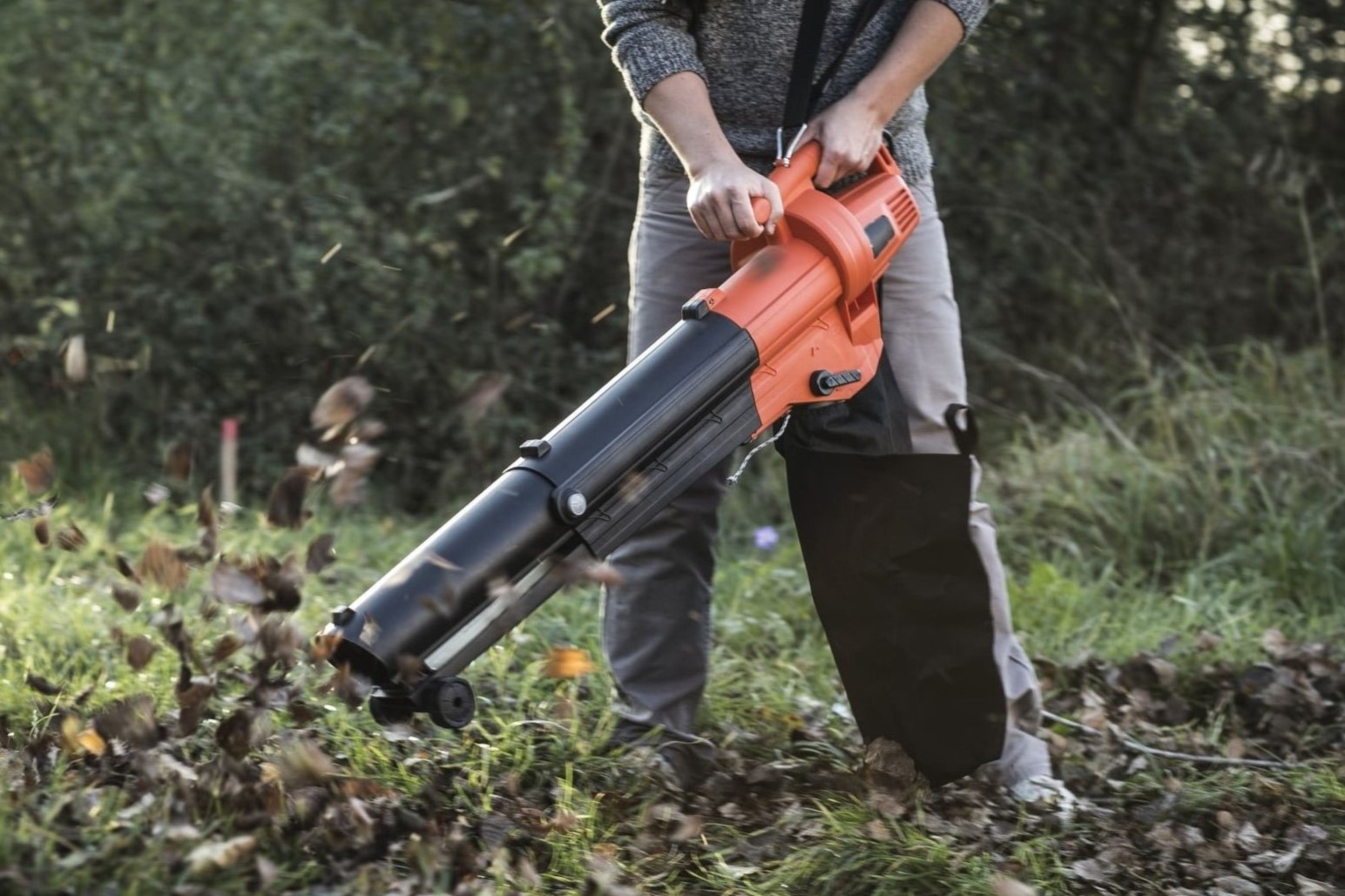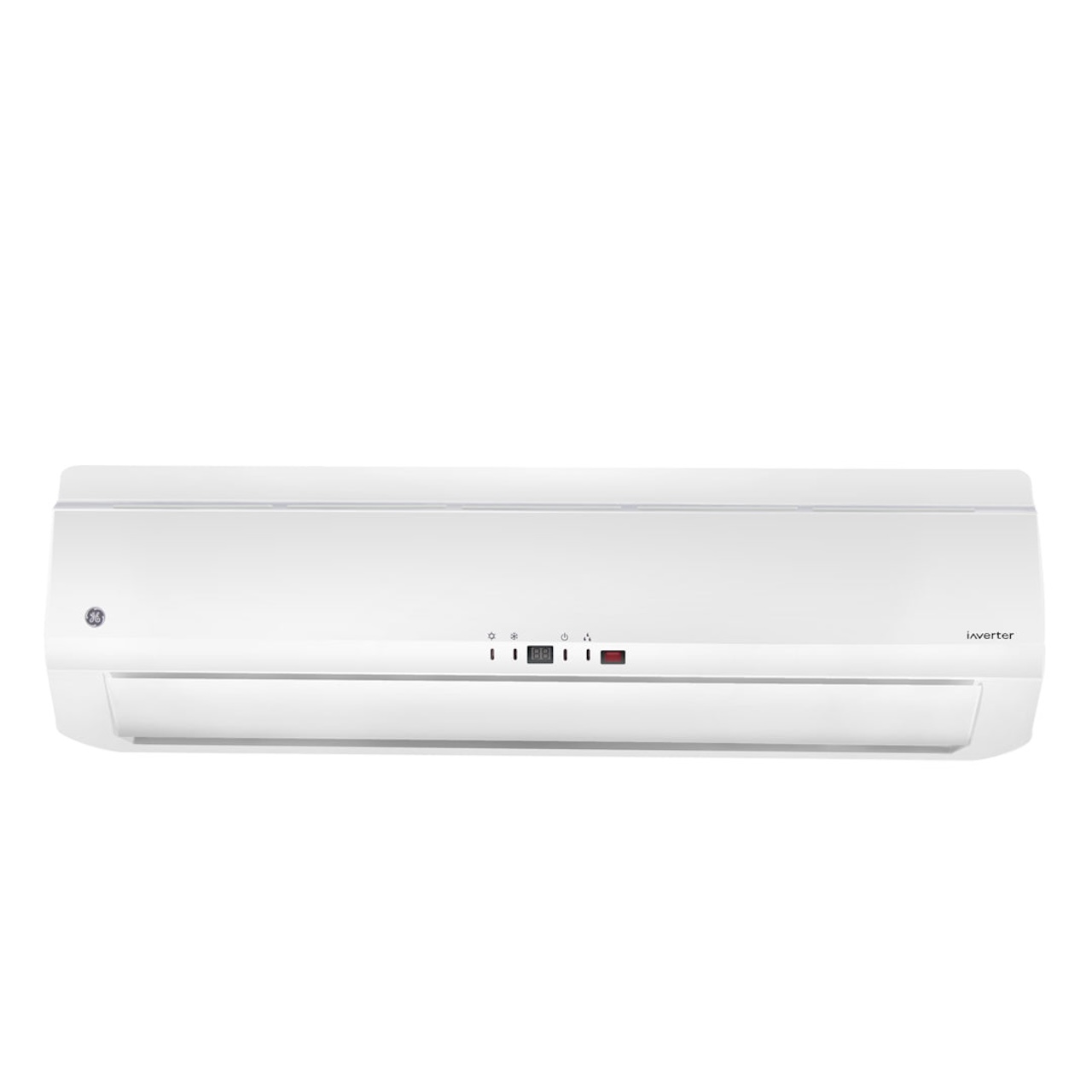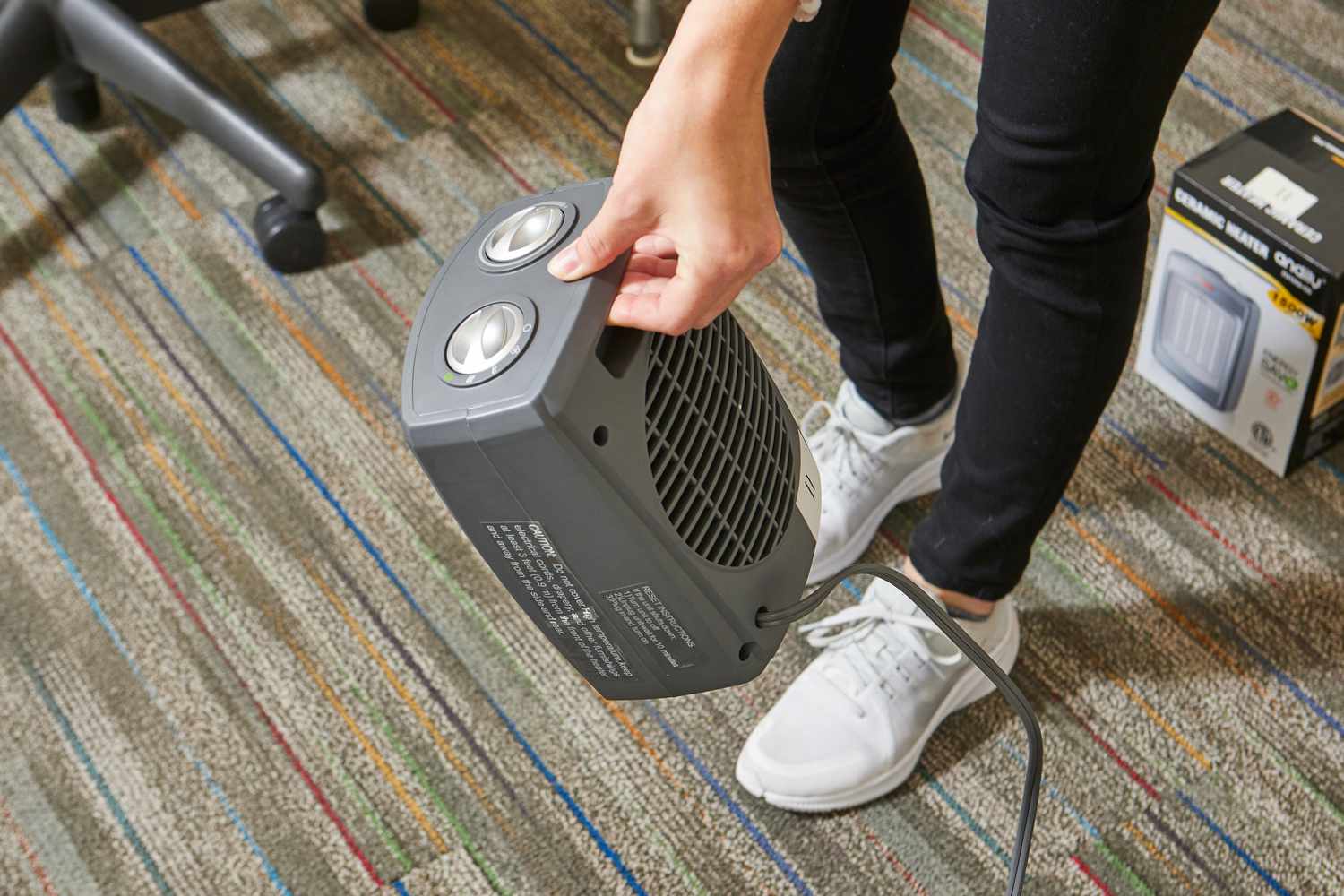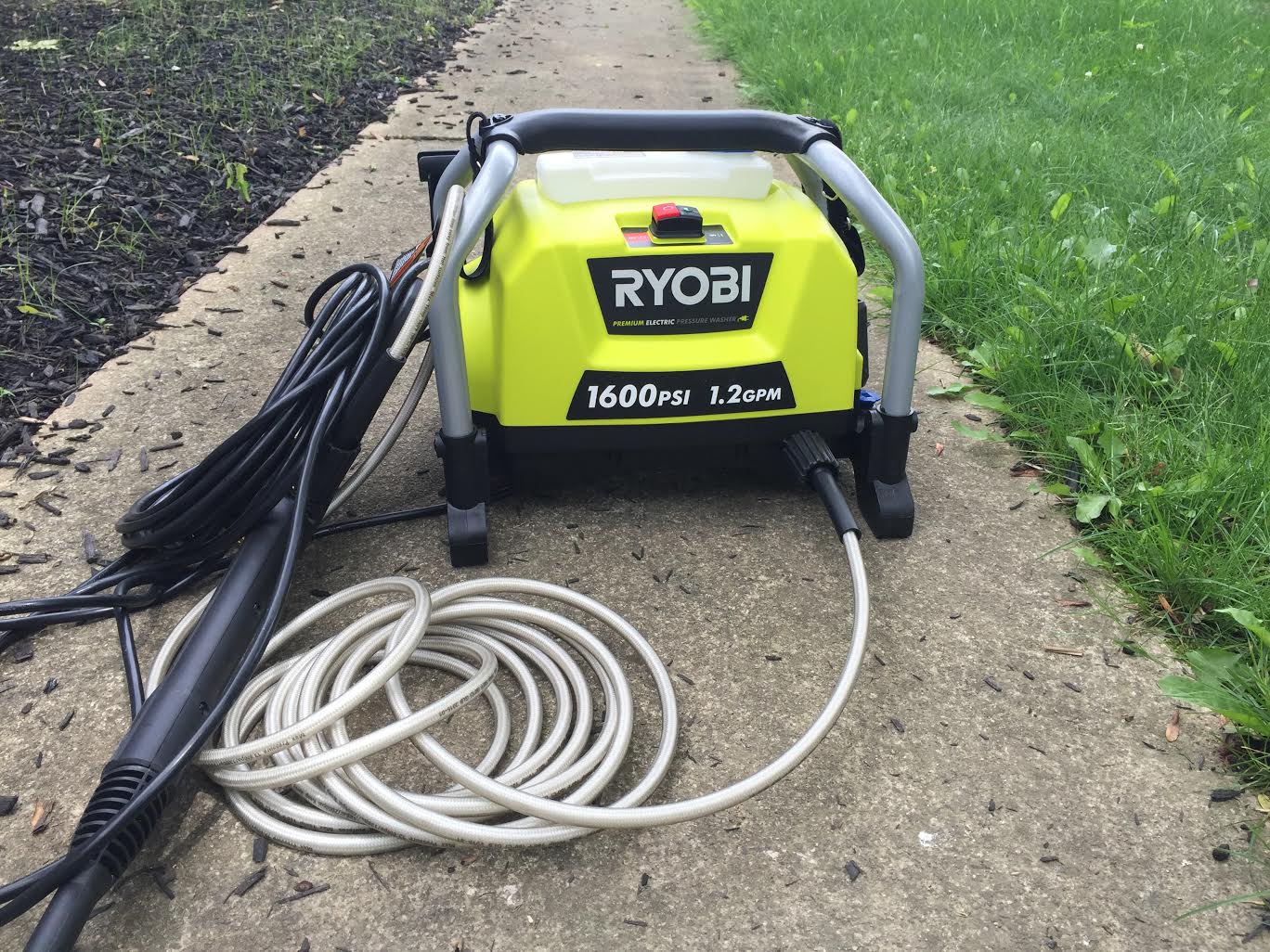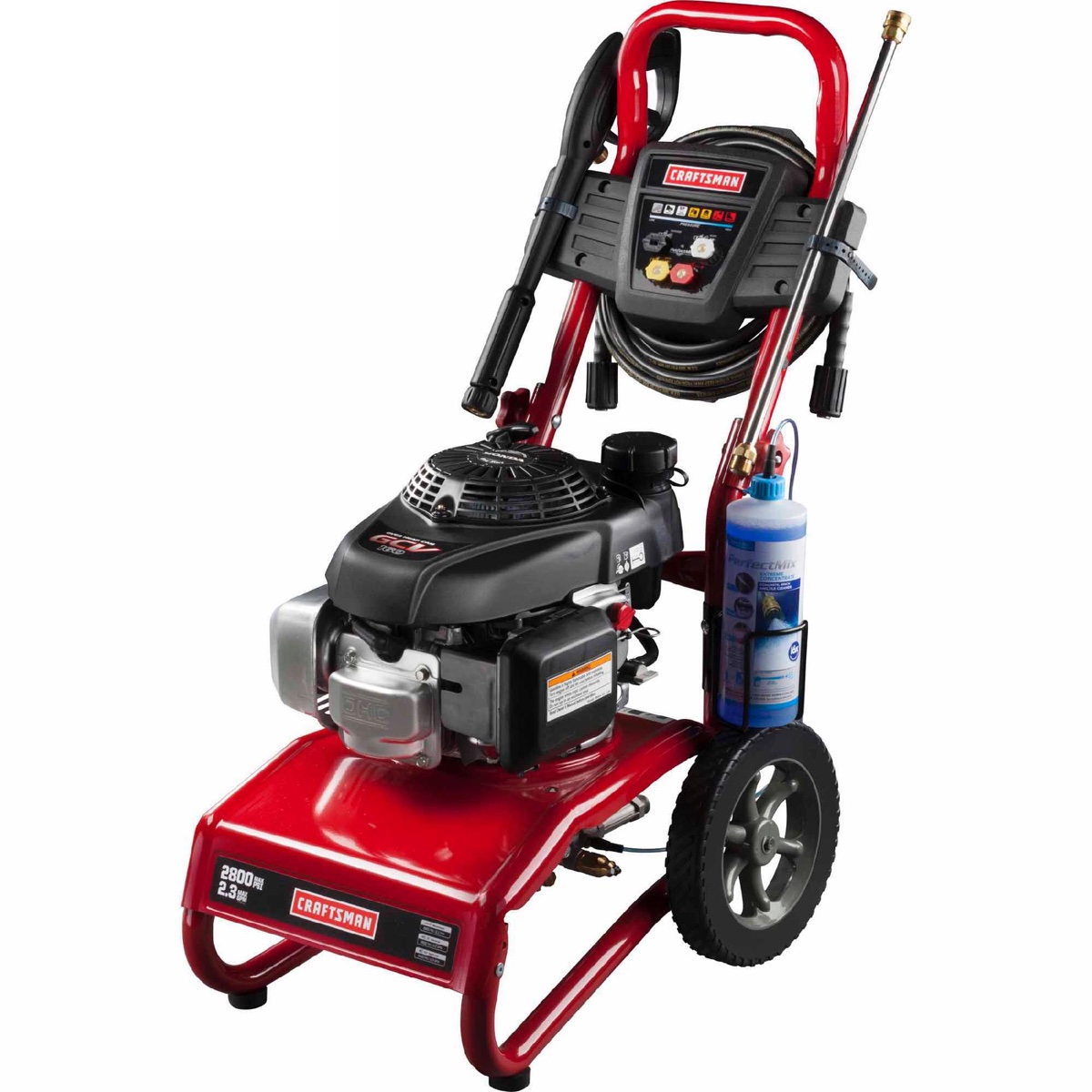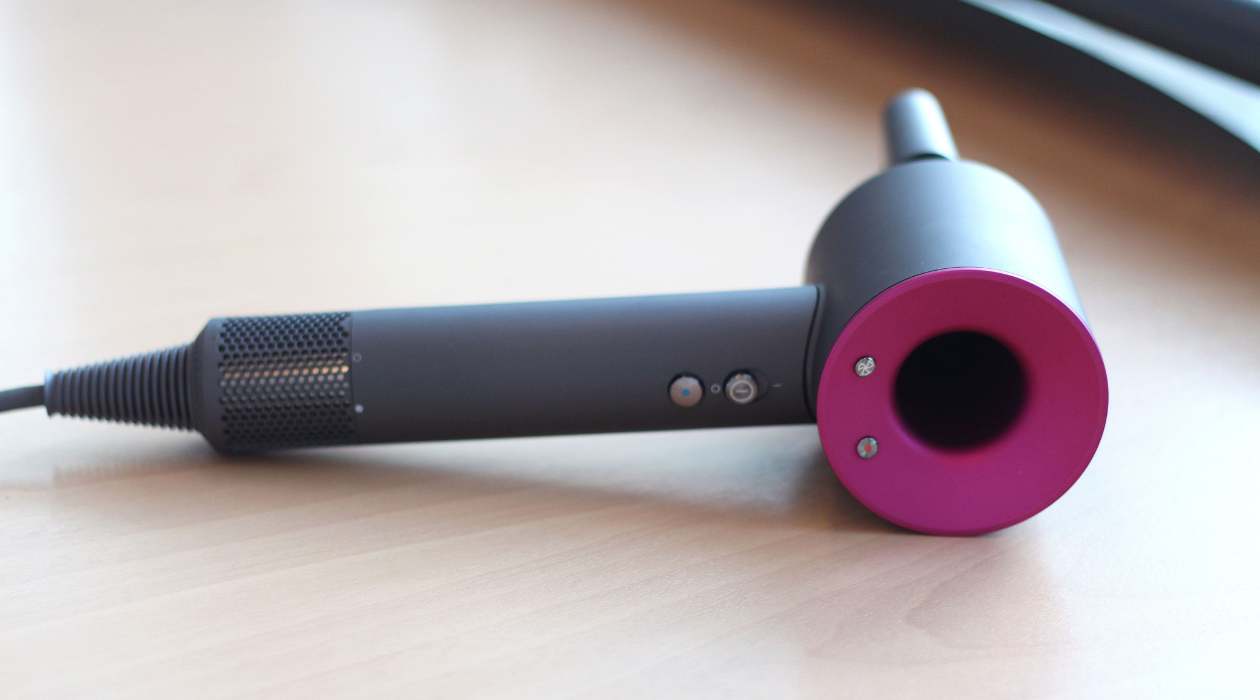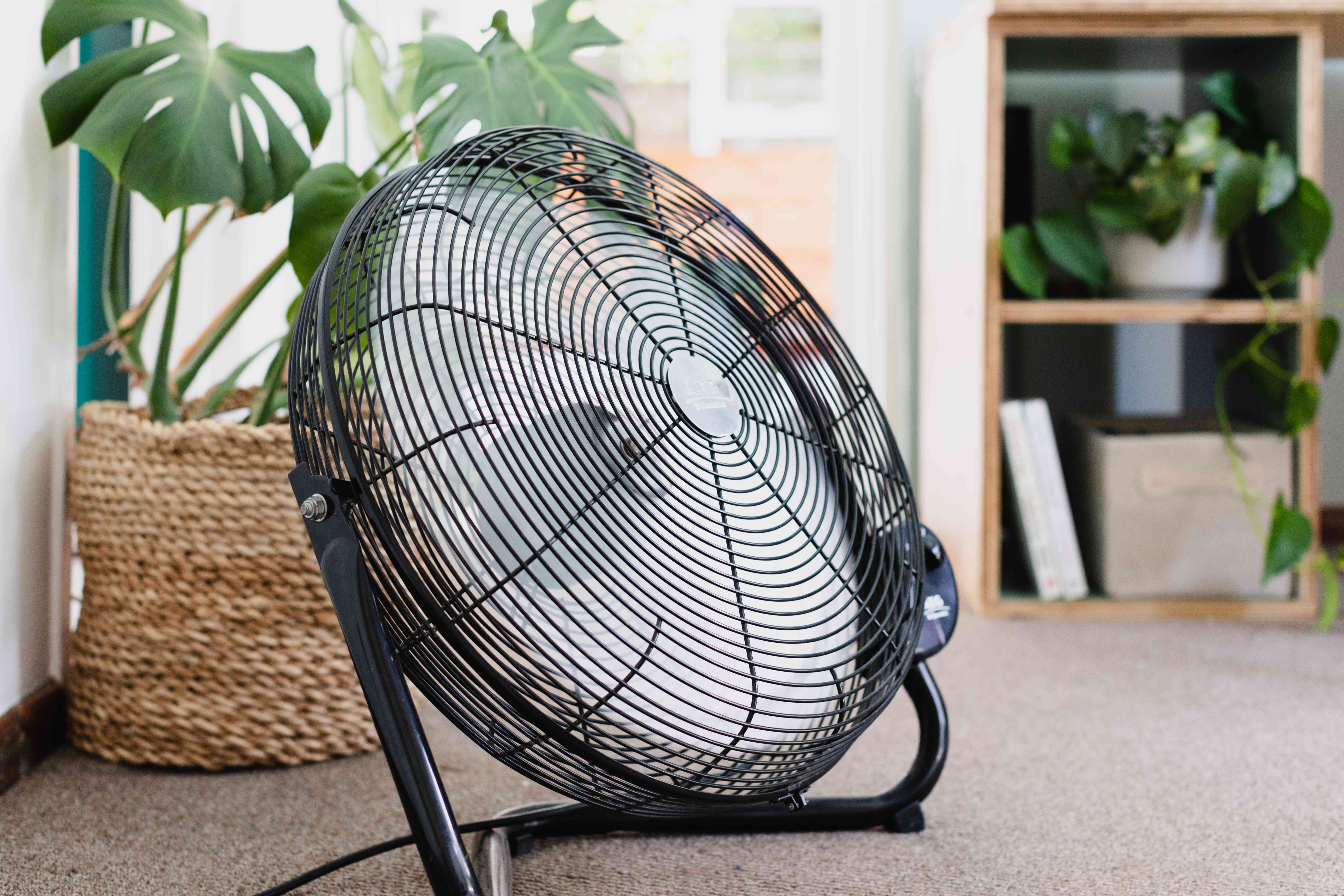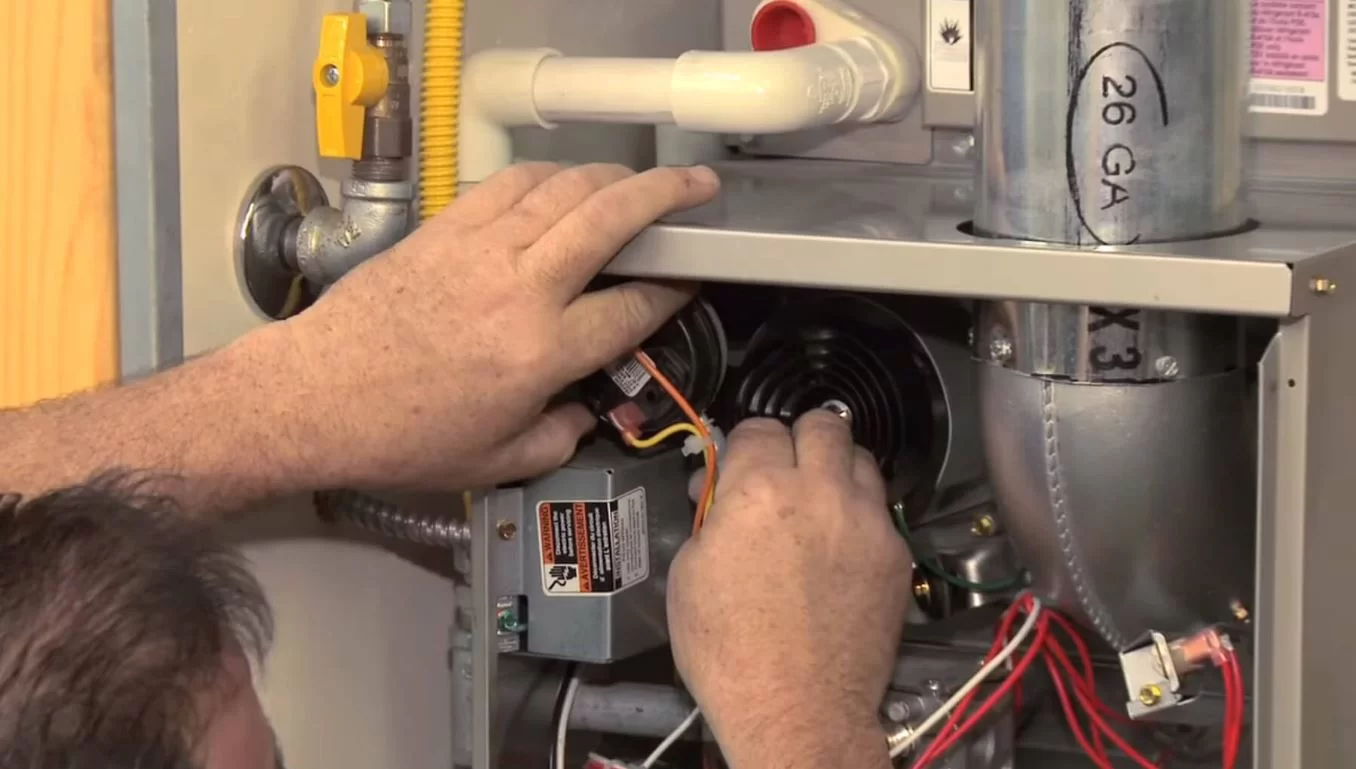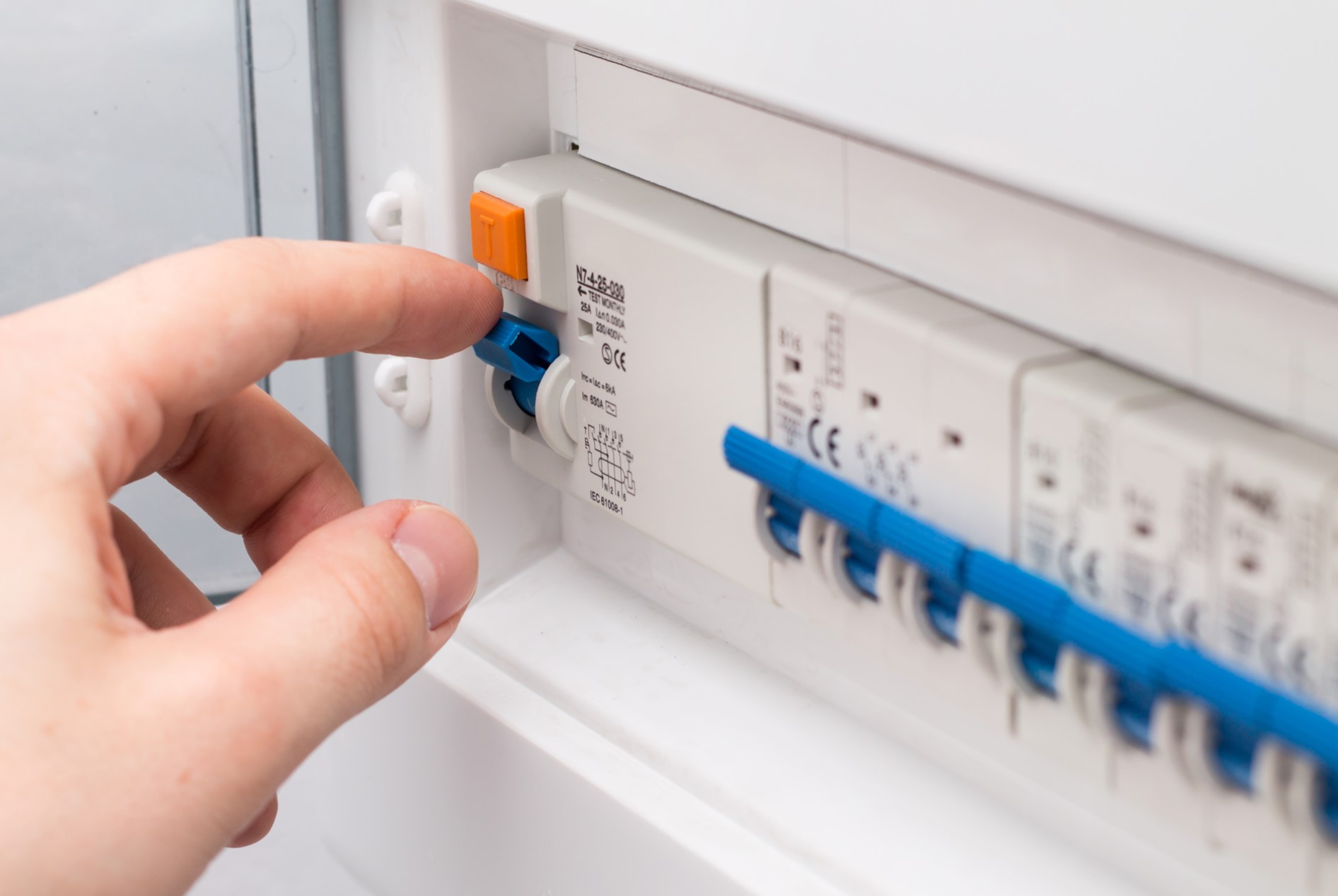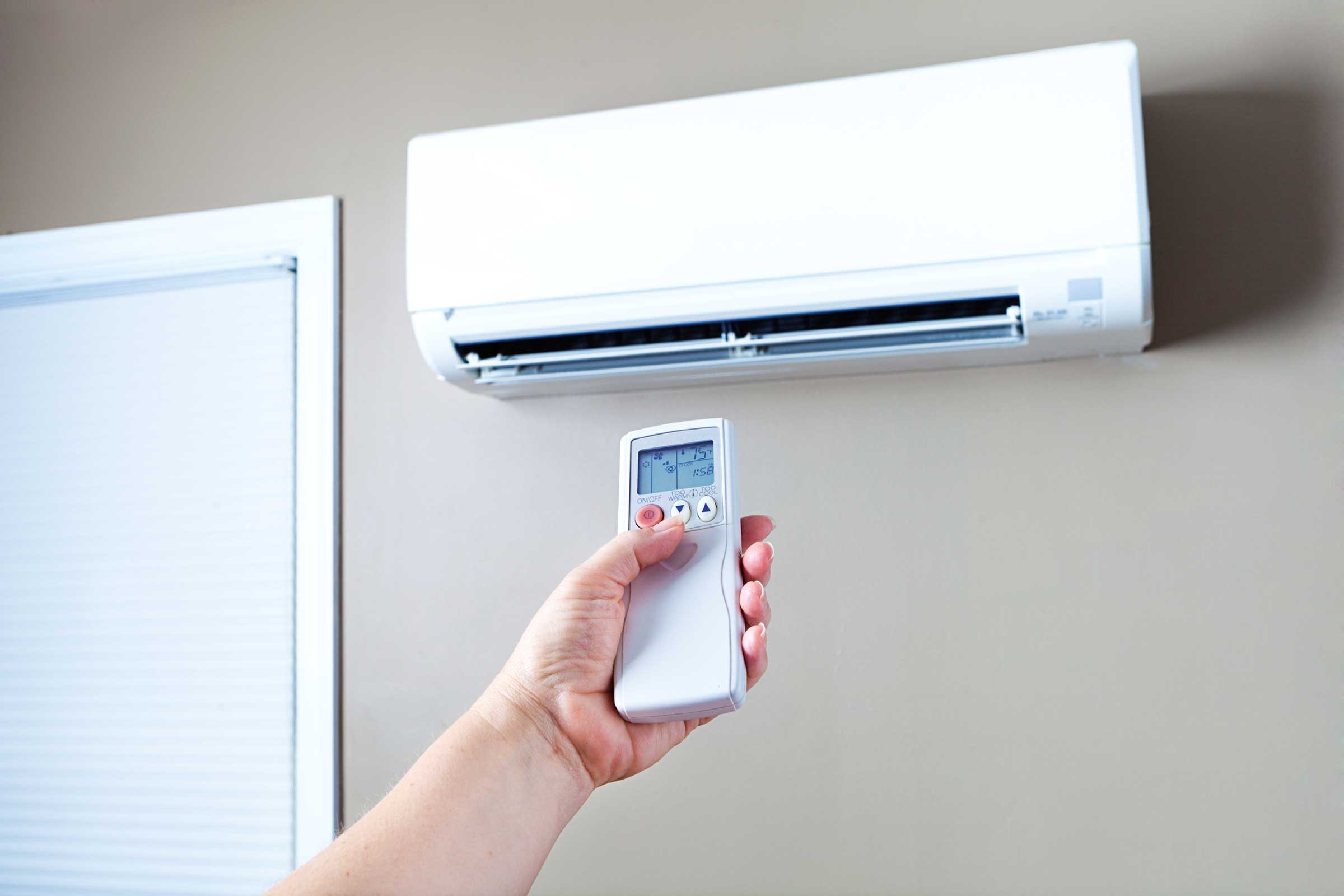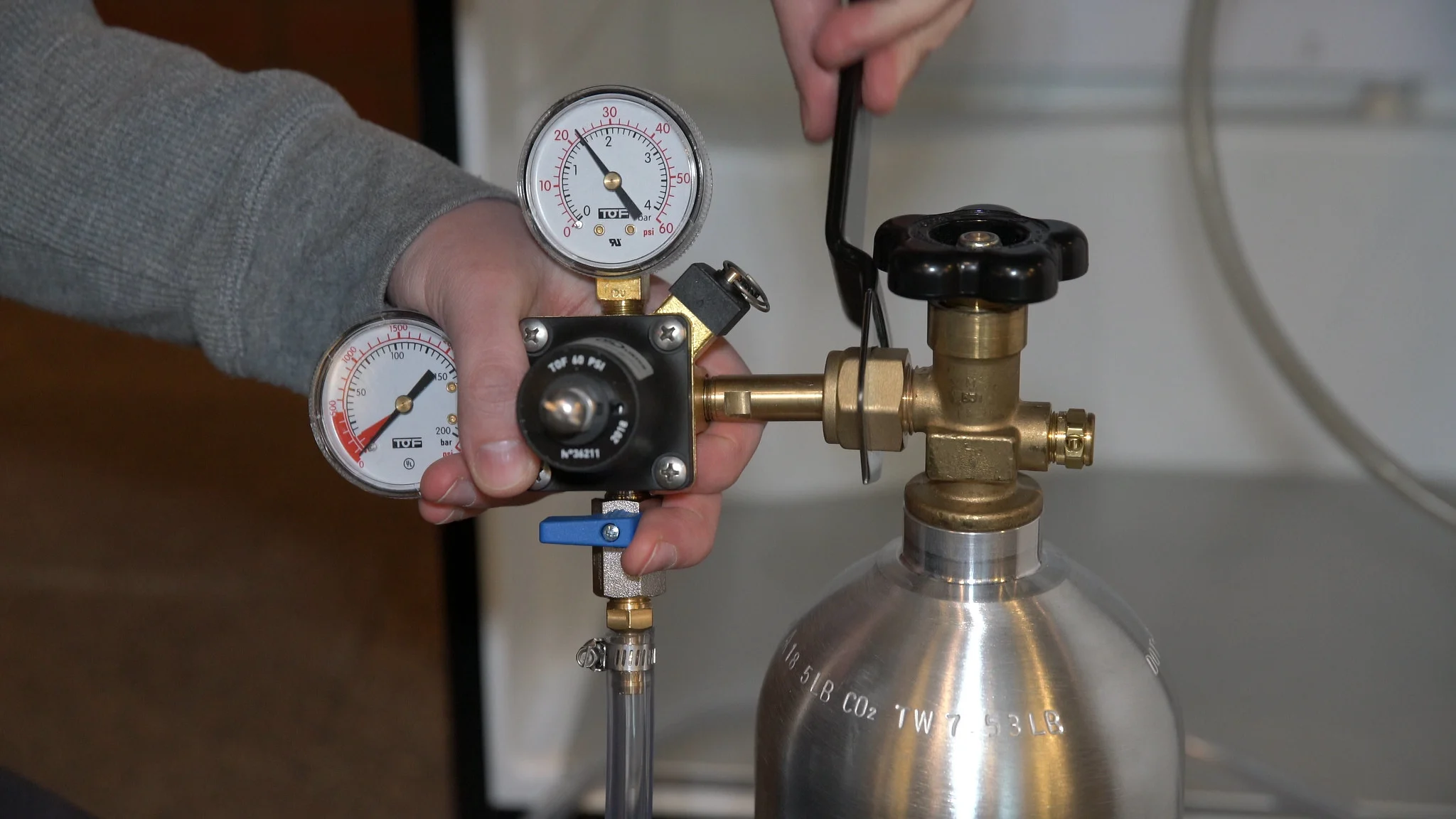Home>Home Maintenance>Why Does My Air Conditioner Keep Shutting Off
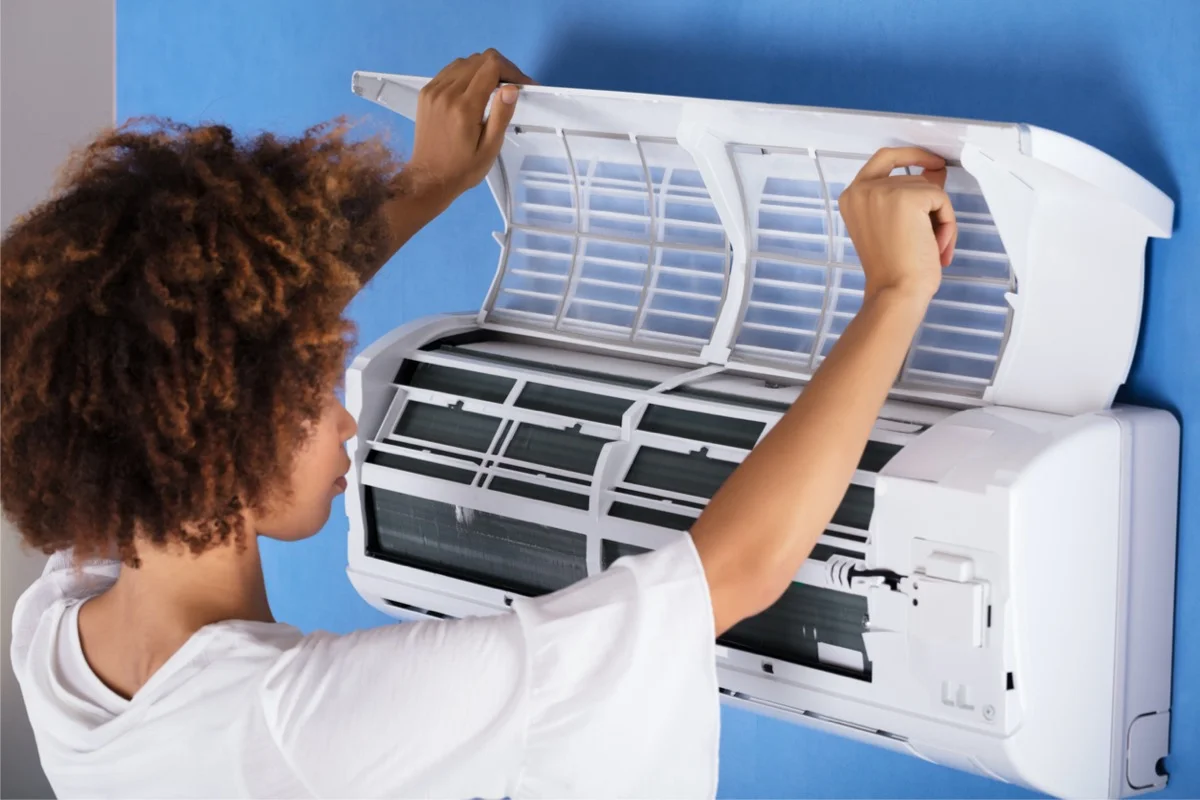

Home Maintenance
Why Does My Air Conditioner Keep Shutting Off
Modified: March 7, 2024
Find out the reasons behind your air conditioner repeatedly shutting off and get expert tips for home maintenance to resolve the issue.
(Many of the links in this article redirect to a specific reviewed product. Your purchase of these products through affiliate links helps to generate commission for Storables.com, at no extra cost. Learn more)
Introduction
Is your air conditioner constantly shutting off? It can be frustrating, especially during the hot summer months when you rely on your AC to keep your home cool and comfortable. Understanding the common causes of this issue can help you troubleshoot the problem and potentially avoid costly repairs.
There are several reasons why an air conditioner may shut off unexpectedly. From dirty air filters to low refrigerant levels, a variety of factors can contribute to this frustrating occurrence. In this article, we will explore the most common causes of air conditioner shut-offs and provide you with some helpful tips to prevent or resolve these issues.
Key Takeaways:
- Keep your air conditioner running smoothly by regularly cleaning or replacing air filters to prevent unexpected shut-offs and improve indoor air quality.
- Address potential issues such as low refrigerant levels, faulty thermostats, and blocked air vents to maintain a comfortable and efficient cooling system.
Common Causes of Air Conditioner Shutting Off
When your air conditioner keeps shutting off, it is essential to understand the underlying causes. Here are some of the most common reasons why this frustrating problem might occur:
- Dirty air filters: Air filters play a crucial role in maintaining the efficiency and performance of your air conditioner. When the filters become dirty and clogged, they restrict airflow, forcing the AC to work harder and potentially overheat. The system then shuts off to prevent further damage. Regularly cleaning or replacing your air filters can help prevent this issue.
- Low refrigerant levels: Refrigerant is the key component that allows your air conditioner to cool the air. If the refrigerant levels are too low, the AC system won’t be able to function properly, leading to overheating and shutdowns. If you suspect a refrigerant leak, it’s important to contact a professional HVAC technician to identify and fix the issue.
- Faulty thermostat: A malfunctioning thermostat can cause your air conditioner to shut off unexpectedly. If the thermostat isn’t accurately reading the temperature or has wiring issues, it may send incorrect signals to the AC unit, causing it to turn off prematurely. Calibration or replacement of the thermostat may be necessary to resolve this problem.
- Overheating compressor: The compressor is responsible for circulating refrigerant and maintaining the cooling process. If the compressor overheats due to high internal temperatures or inadequate lubrication, it can trigger the AC to shut off as a protective measure. Regular maintenance and ensuring proper airflow around the compressor unit can help prevent this issue.
- Improperly sized air conditioner: If your air conditioner is too big or too small for the space it is cooling, it may intermittently shut off. An oversized unit cools the area quickly, causing frequent on-off cycles, while an undersized unit struggles to cool the space and may shut off due to strain. It’s important to invest in professional installation to ensure the right-sized AC for your home.
- Blocked air vents: Blocked or obstructed air vents can disrupt the airflow in your home, leading to overheating and shutdowns. Furniture, curtains, or other objects blocking the vents can prevent proper air circulation. Ensure that all vents are clear and free from any obstructions for optimal performance.
- Electrical issues: Problems with electrical connections or faulty wiring can cause your air conditioner to shut off unexpectedly. Loose connections or short circuits can trip the circuit breaker and cut off power to the AC unit. If you suspect electrical issues, it’s crucial to hire a licensed electrician or HVAC technician to inspect and repair the problem.
Identifying the specific cause of your air conditioner shutting off may require the expertise of a professional HVAC technician. If you have tried troubleshooting these common causes and the problem persists, it is recommended to contact a qualified technician to diagnose and repair the issue.
Dirty Air Filters
One of the most common causes of air conditioner shut-offs is dirty air filters. Air filters are designed to trap dust, dirt, and other particles from circulating in your home. Over time, these filters can become clogged with debris, restricting the airflow and reducing the efficiency of your air conditioner.
When the air filters are dirty, the AC unit has to work harder to pull air through the system. This increased strain can lead to overheating, causing the system to shut off as a safety measure. Ignoring dirty filters not only impacts the performance of your HVAC system but can also result in increased energy consumption and higher utility bills.
To prevent this issue, it is essential to regularly clean or replace your air filters. The frequency of filter maintenance depends on various factors, including the type of filter, the number of occupants in your home, and the presence of pets or allergies. As a general rule of thumb, it is recommended to check your air filters every one to three months and clean or replace them as necessary.
Cleaning or replacing air filters is a relatively simple task that can be done by homeowners. Here are the steps to follow:
- Locate the air filter: The air filter is typically located in the return air duct or behind a grille in your home.
- Turn off the AC system: Before removing the filter, it is important to turn off the air conditioner to avoid any potential damage.
- Remove the filter: Gently pull out the filter from its housing. Take note of the direction of airflow indicated on the filter for proper installation.
- Clean or replace the filter: If the filter is dirty and reusable, you can clean it with a vacuum cleaner or rinse it with water. Allow the filter to dry completely before reinstalling it. If the filter is disposable or severely clogged, it is best to replace it with a new one.
- Reinstall the filter: Carefully place the cleaned or new filter back into the air conditioner in the same direction as indicated.
- Turn on the AC system: Once the filter is securely in place, you can turn on the air conditioner and enjoy improved airflow and system performance.
Regularly cleaning or replacing your air filters not only prevents unexpected shut-offs but also improves indoor air quality by reducing the amount of dust and allergens in your home. It is important to note that some modern air conditioning systems come equipped with reusable filters that can be easily rinsed and reused, eliminating the need for frequent replacements.
By taking the time to maintain your air filters and ensure their cleanliness, you can extend the lifespan of your air conditioner, improve its efficiency, and reduce the chances of it shutting off unexpectedly.
Low Refrigerant Levels
Another common cause of an air conditioner shutting off is low refrigerant levels. Refrigerant serves as the cooling agent in your AC system, absorbing heat from indoor air and releasing it outside. When the refrigerant levels are low, your air conditioner won’t be able to effectively cool the air, resulting in inadequate performance and potential system shutdowns.
Low refrigerant levels can be caused by various factors, including refrigerant leaks, improper installation, or manufacturing defects. If you notice that your air conditioner is not providing sufficient cooling or frequently shutting off, it is crucial to have a professional HVAC technician inspect the system for refrigerant leaks and recharge it if necessary.
Refrigerant leaks can occur anywhere in the AC system, including the coils, fittings, or valves. These leaks not only lead to low refrigerant levels but can also pose environmental hazards and affect the overall efficiency of your air conditioner.
If you suspect a refrigerant leak, it’s important to contact a licensed HVAC technician. They have the expertise and tools to detect and repair leaks safely. The technician will also determine the appropriate refrigerant recharge level based on the specifications of your AC unit, ensuring optimal performance and preventing further shutdowns.
It’s important to note that simply adding refrigerant without fixing the underlying leak is not a solution. The refrigerant will continue to escape, and the problem will persist. It’s crucial to address the leak promptly to prevent long-term damage to your air conditioning system and ensure its efficient operation.
To prevent low refrigerant levels and potential shut-offs in the future, here are a few preventive measures:
- Schedule regular maintenance: Regular professional maintenance for your air conditioning system can help detect and address refrigerant leaks early on. HVAC technicians can also perform refrigerant recharging if necessary.
- Keep the outdoor unit clean: Debris and vegetation can obstruct the outdoor unit and impede proper airflow, leading to overheating and potential refrigerant issues. Regularly clean the area around the outdoor unit to ensure optimal performance.
- Avoid DIY refrigerant handling: Refrigerant is a hazardous substance that requires proper handling and disposal. It is best to leave refrigerant-related tasks to trained HVAC professionals to ensure safety and compliance with regulations.
By taking proactive measures to maintain proper refrigerant levels in your air conditioning system, you can enjoy consistent cooling performance and minimize the risk of unexpected shut-offs.
Faulty Thermostat
A faulty thermostat can also be a culprit behind your air conditioner shutting off unexpectedly. The thermostat is the component that controls the temperature settings in your home and sends signals to the AC unit to turn on or off. When a thermostat malfunctions, it can send incorrect temperature readings or fail to communicate with the air conditioner properly, leading to system shutdowns.
There are several common issues that can cause a thermostat to function improperly:
- Misplacement: If the thermostat is located in an area that is exposed to direct sunlight, drafts, or heat sources, it can falsely detect the temperature and send inaccurate signals to the AC unit. This can result in frequent on-off cycles and inadequate cooling.
- Calibration problems: Over time, a thermostat’s temperature sensor may become inaccurate, leading to incorrect temperature readings. This can cause the air conditioner to turn off prematurely or run continuously, resulting in discomfort and high energy bills. Recalibrating or replacing the thermostat can resolve this issue.
- Wiring issues: Faulty wiring connections can disrupt the communication between the thermostat and the AC unit, causing intermittent shut-offs. Loose or damaged wires should be inspected and repaired by a qualified technician to ensure proper functionality.
- Dead batteries: Some thermostats are battery-powered. If the batteries are dead, the thermostat may not operate correctly, leading to shutdowns and temperature inconsistencies. It’s important to replace the batteries periodically to maintain proper functioning of the thermostat.
If you suspect a faulty thermostat is causing your air conditioner to shut off, there are a few troubleshooting steps you can take:
- Check the thermostat settings: Ensure that the thermostat is set to the appropriate cooling mode and temperature. Verify that the fan is set to “auto” rather than “on,” as the latter can cause continuous operation of the AC unit.
- Inspect the thermostat location: Ensure that the thermostat is placed away from any heat sources, drafts, or direct sunlight. These external factors can affect temperature readings and cause the AC unit to shut off prematurely.
- Test the thermostat: You can perform a simple test by adjusting the temperature on the thermostat to a lower setting. If you hear a click or the AC unit turns on, it indicates that the thermostat is functioning correctly. If not, it may be time to replace or recalibrate the thermostat.
- Replace the batteries: If your thermostat is battery-powered, replace the batteries with fresh ones to ensure proper functioning. Follow the manufacturer’s instructions for battery replacement.
If these troubleshooting steps do not resolve the issue, or if you suspect more complex thermostat problems, it is recommended to consult with an HVAC professional. They can diagnose the issue, repair or replace the faulty thermostat, and restore the proper functioning of your air conditioning system.
Ensuring that your thermostat is in good working order is essential for maintaining a comfortable indoor environment and preventing unexpected shut-offs.
Check the air filter and clean or replace it if it’s dirty. A clogged filter can cause the AC to shut off to prevent damage.
Overheating Compressor
An overheating compressor is another common cause of an air conditioner shutting off unexpectedly. The compressor is a vital component of the AC system that circulates refrigerant, converting it from a low-pressure gas to a high-pressure gas, allowing for effective cooling. When the compressor becomes overheated, it triggers a safety mechanism to shut off the air conditioner to prevent further damage.
There are several factors that can lead to an overheating compressor:
- High ambient temperatures: During hot summer days, the outdoor temperature can rise significantly. When the ambient temperature is too high, the compressor has to work harder to cool the air, which can lead to increased internal temperatures and potential overheating.
- Inadequate ventilation: Proper airflow is crucial for the operation of the compressor. If the outdoor unit is obstructed by debris, vegetation, or other objects, it restricts the airflow, causing the compressor to work harder and overheat. Regularly cleaning the outdoor unit and keeping it free from any obstructions can help prevent this issue.
- Lack of lubrication: The compressor relies on lubricants to reduce friction and heat. If the compressor is not properly lubricated, it can lead to increased friction, heat buildup, and potential shutdowns. Regular maintenance that includes lubrication of the compressor can help prevent this issue.
- Faulty fan motor: The fan motor in the outdoor unit helps dissipate heat from the compressor. If the fan motor is not functioning correctly or is obstructed, it can prevent proper heat dissipation, leading to compressor overheating.
If you suspect that an overheating compressor is causing your air conditioner to shut off, here are a few steps you can take:
- Check the outdoor unit: Inspect the outdoor unit and ensure that there is no debris or vegetation obstructing the airflow. Remove any obstructions and clean the unit if necessary.
- Verify the fan operation: Listen for the sound of the fan running in the outdoor unit. If the fan is not spinning or there are any unusual noises, it may indicate a faulty fan motor. In such cases, it is advisable to contact a professional HVAC technician to inspect and repair the fan motor.
- Schedule regular maintenance: Regular maintenance by a professional technician is essential to keep your air conditioner in optimal condition. During maintenance visits, the technician can inspect and lubricate the compressor, as well as check for any potential issues that may lead to overheating.
- Consider shade for the outdoor unit: If the outdoor unit is exposed to direct sunlight for prolonged periods, it can contribute to overheating. Providing shade for the unit, such as by installing a canopy or placing it under a shade structure, can help maintain lower temperatures.
If these steps do not resolve the issue or if you are unsure about performing the troubleshooting yourself, it is recommended to contact a licensed HVAC technician. They have the expertise and tools to diagnose and repair compressor-related problems, ensuring the proper functioning of your air conditioning system.
Regular maintenance and proper airflow around the outdoor unit can help prevent compressor overheating and unexpected shutdowns, allowing your air conditioner to operate efficiently and reliably.
Improperly Sized Air Conditioner
One of the possible causes for your air conditioner shutting off unexpectedly is an improperly sized unit for your home. It’s crucial to have an air conditioner that is properly sized to match the cooling demands of your space. An oversized or undersized AC unit can lead to inconsistent temperature control, increased energy consumption, and frequent cycling on and off, resulting in potential system shutdowns.
Here are some issues that can arise from an improperly sized air conditioner:
- Oversized unit: An air conditioner that is too large for your home can cool the space too quickly. This quick cooling often leads to frequent on-off cycles, as the unit reaches the desired temperature rapidly. The short cycling not only consumes unnecessary energy but can also strain the system, potentially causing it to shut off prematurely for safety reasons.
- Undersized unit: Conversely, an air conditioner that is too small for your home will struggle to cool the space adequately. The undersized unit will constantly run in an attempt to meet the cooling demands, resulting in excessive wear and tear, reduced system lifespan, and potential system shutdowns due to overworking.
- Inefficient operation: When an air conditioner is not properly sized, it may struggle to maintain consistent and comfortable temperatures. This inefficient operation can lead to temperature fluctuations, discomfort, and uneven cooling throughout your home.
- Higher energy consumption: An improperly sized air conditioner may use more energy than necessary because it operates inefficiently. This can result in increased energy bills and unnecessary environmental impact.
If you suspect that your air conditioner is improperly sized, it is best to consult with a professional HVAC technician. They can assess the cooling requirements of your home and recommend the appropriate-sized unit.
When installing a new air conditioner or replacing an existing one, it’s important to consider factors such as the square footage of your home, insulation levels, the number of occupants, and the local climate. These considerations will help determine the correct cooling capacity required for your space.
While it may be tempting to opt for a bigger air conditioner, thinking it will cool your home faster, it is crucial to work with a professional installer who can perform a load calculation to ensure the unit’s proper sizing. A load calculation takes into account several parameters and factors to determine the precise cooling capacity needed for your specific home.
Investing in a properly sized air conditioner tailored to your home’s requirements not only ensures optimal comfort but also improves energy efficiency and reduces the likelihood of unexpected system shutdowns.
Blocked Air Vents
Blocked or obstructed air vents can be another common cause of an air conditioner shutting off unexpectedly. Air vents play a crucial role in distributing cool air throughout your home. When these vents are blocked, restricted, or obstructed, it disrupts the airflow and can lead to system inefficiency and shutdowns.
Here are some potential issues that can arise from blocked air vents:
- Restricted airflow: When air vents are blocked by furniture, curtains, rugs, or other objects, it hinders the proper flow of air. This restriction can cause the air conditioner to work harder to push cool air into your home, leading to strain on the system and potential shutdowns.
- Inconsistent cooling: Blocked air vents can result in uneven cooling throughout your home. Rooms that are farther away from the air conditioning unit may receive less cool air, while rooms near the unit may become excessively cool. This temperature imbalance not only causes discomfort but can also prompt the system to shut off prematurely.
- Increased energy consumption: When the airflow is impeded due to blocked vents, your air conditioner has to work harder to achieve the desired temperature. This increased strain not only affects the efficiency of the system but can also lead to higher energy consumption and elevated utility bills.
- System strain: When an air conditioner is consistently working against restricted airflow, it can experience excessive wear and tear. This strain on the system can lead to decreased performance, reduced system lifespan, and potential system shutdowns to avoid further damage.
To prevent blocked air vents and potential system shutdowns, consider the following tips:
- Ensure proper furniture placement: Avoid placing furniture directly in front of air vents to allow unrestricted airflow. Arrange furniture in a way that facilitates proper air circulation and cooling throughout your home.
- Keep air vents clear: Regularly check that air vents are clear of any obstructions, such as curtains, rugs, or decorative items. This ensures that cool air can flow freely into your living spaces.
- Perform regular vent cleaning: Over time, dust and debris can accumulate in the air vents, obstructing airflow. Regularly clean the vents using a vacuum cleaner or a soft brush to remove any accumulated dirt and maintain optimal airflow.
- Consider vent deflectors or extenders: In some cases, vent deflectors or extenders can help redirect airflow in areas where it may be obstructed by furniture or other objects. These devices can help maximize the efficiency of your air conditioning system.
By ensuring that your air vents are clear and unobstructed, you can promote proper airflow, maintain consistent cooling throughout your home, and reduce the risk of unexpected system shutdowns.
Electrical Issues
Electrical issues can be a potential cause of an air conditioner shutting off unexpectedly. Problems with the electrical connections or faulty wiring can interrupt the power supply to your air conditioning unit, resulting in system shutdowns. Addressing any electrical issues promptly is crucial for maintaining the proper functioning of your air conditioner.
Here are some common electrical issues that can lead to AC shutdowns:
- Loose connections: Over time, electrical connections can become loose due to vibrations or normal wear and tear. Loose connections can disrupt the flow of electricity, causing intermittent power interruptions and leading to the air conditioner shutting off unexpectedly. Regular inspection and tightening of electrical connections can help prevent this issue.
- Short circuits: Short circuits occur when a live wire comes into contact with a neutral wire or a ground wire. This causes a sudden surge of electrical current, resulting in a tripped circuit breaker or blown fuse, cutting off power to the AC unit. Short circuits can be caused by damaged or frayed wires, faulty components, or faulty installation. It is important to have a licensed electrician or HVAC technician diagnose and repair any short circuits.
- Faulty wiring: Poorly installed or faulty wiring can disrupt the electrical supply to your air conditioning system. Common wiring issues include improper wire sizing, inadequate insulation, or incorrect connections. Faulty wiring can cause the air conditioner to shut off unexpectedly and may pose a safety hazard. It is essential to consult a professional electrician or HVAC technician to inspect and repair any faulty wiring.
- Circuit breaker tripping: A circuit breaker is designed to protect electrical circuits from overload and potential hazards. If the air conditioner draws excessive electrical current or there is a fault in the electrical system, the circuit breaker may trip, cutting off power to the AC unit. This shut-off is a safety measure to prevent damage to the system or electrical hazards. If you regularly experience circuit breaker trips, it is advisable to have an electrician assess the electrical load and potentially upgrade the circuit breaker or wiring.
If you suspect electrical issues are causing your air conditioner to shut off unexpectedly, it is essential to prioritize safety and seek professional help. Here are a few steps you can take to address the problem:
- Check the circuit breaker: If the air conditioner has shut off, check the circuit breaker panel to see if any breakers have tripped. If a breaker has tripped, flip it back on and observe if the AC unit stays on. If the breaker continues to trip, it is recommended to contact a professional electrician.
- Inspect the wiring: Visually inspect the wiring connections to ensure they are secure and free from damage. If you notice loose or damaged wires, do not attempt to fix them yourself. Contact a licensed electrician who can safely handle electrical repairs.
- Contact a professional: If you suspect electrical issues but are unsure how to proceed, it is best to consult with a licensed electrician or HVAC technician. They have the knowledge and expertise to diagnose and repair electrical problems safely.
Electrical issues should always be handled by qualified professionals to ensure the integrity of your air conditioning system and to maintain the safety and reliability of your electrical system.
Read more: Why Does My Dryer Keep Shutting Off
Conclusion
Experiencing your air conditioner shutting off unexpectedly can be frustrating, especially during hot summer months when you rely on it for cooling and comfort. Understanding the common causes of this issue can help you troubleshoot the problem and potentially avoid costly repairs.
In this article, we have explored some of the most frequent reasons for air conditioner shut-offs:
- Dirty air filters that restrict airflow and cause the system to overheat.
- Low refrigerant levels due to leaks or improper installation.
- Faulty thermostats that provide incorrect temperature readings or fail to communicate with the AC unit.
- Overheating compressors caused by high ambient temperatures, lack of ventilation, or inadequate lubrication.
- Improperly sized air conditioners that lead to inefficient operation, temperature imbalances, and increased energy consumption.
- Blocked air vents that restrict airflow and reduce the efficiency of the cooling system.
- Electrical issues such as loose connections, short circuits, and faulty wiring that disrupt the power supply to the AC unit.
To ensure optimal performance and prevent unexpected shut-offs, there are several preventive measures you can take:
- Regularly clean or replace air filters to maintain proper airflow and energy efficiency.
- Address refrigerant issues by detecting and repairing leaks and recharging the system as necessary.
- Calibrate or replace faulty thermostats to accurately control the temperature settings.
- Maintain proper ventilation and provide shade for outdoor units to prevent compressor overheating.
- Ensure that your air conditioner is properly sized for your home’s cooling needs.
- Keep air vents clear from obstructions to allow for unrestricted airflow.
- Address electrical issues promptly by consulting with licensed professionals.
Remember, if you encounter persistent issues or are unsure about troubleshooting, it is always recommended to seek the expertise of qualified HVAC technicians or electricians.
By taking proactive steps to maintain and address common issues, you can ensure the efficient and reliable operation of your air conditioning system, keeping your home cool and comfortable all summer long.
Frequently Asked Questions about Why Does My Air Conditioner Keep Shutting Off
Was this page helpful?
At Storables.com, we guarantee accurate and reliable information. Our content, validated by Expert Board Contributors, is crafted following stringent Editorial Policies. We're committed to providing you with well-researched, expert-backed insights for all your informational needs.
